What is SEO and Why is it Important?

What is SEO and Why is it Important?
#SEO (Search Engine Optimization) is an acronym for Search Engine Optimization and refers to optimizing search engines.
SEO is a set of techniques and strategies used to improve a website’s ranking in search engine results like Google.
The main goal of SEO is to increase website visibility for users looking for related products or services.
The importance of SEO can be examined from various aspects.
Firstly, websites that appear on the initial pages of search results attract more traffic.
Users often trust early results more and are more likely to click on them.
Secondly, SEO can help increase brand awareness.
When a website consistently appears in search results, brand recognition among the audience increases.
Thirdly, SEO can help improve the website’s user experience.
Many SEO techniques, such as page loading speed optimization and website structure improvement, directly lead to improved user experience.
Finally, SEO is a long-term investment.
Unlike pay-per-click (PPC) advertising, which only generates traffic when there is an advertising budget, SEO can create sustainable organic traffic over time.
In fact, SEO is crucial for any online business.
Are you bothered by losing customers who visited your site to buy?
Rasawab is your specialized solution for a successful online store.
✅ Significant increase in your online sales
✅ Building trust and professional branding with customers⚡ Get free consultation from Rasawab experts!
Keyword Research: The First Step in SEO
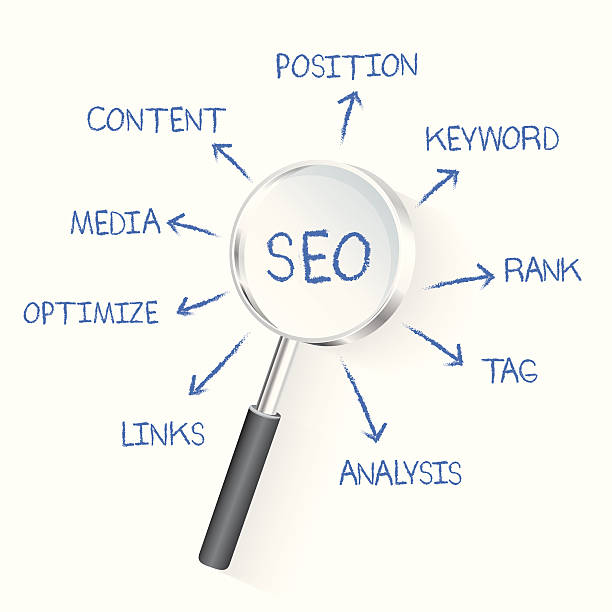
Keyword Research: The First Step in SEO
Keyword research is one of the most fundamental and crucial steps in the SEO process.
Choosing the right keywords can significantly impact attracting targeted traffic to your website.
The keyword research process involves identifying phrases and words that users type into search engines to find information, products, or services related to your business.
This step should be done carefully and using appropriate tools so that you can choose keywords that are both relevant to your business and have a suitable search volume.
To begin keyword research, you should first prepare a list of main topics and concepts related to your business.
Then, using tools like Ahrefs, Moz Keyword Explorer, and Google Keyword Planner, you can find keywords related to these topics.
These tools provide information such as search volume, competition level, and related keywords, which can help you choose the best keywords.
Also, analyzing competitor websites and identifying their keywords can be a good source for finding suitable keywords.
Remember that choosing long-tail keywords, which are longer and more specific phrases, can help attract more targeted traffic and reduce competition.
Ultimately, successful SEO depends on keyword research.
On-Page SEO: Website Page Optimization

On-Page SEO: Website Page Optimization
On-Page SEO refers to a set of techniques and strategies used to optimize website pages to improve their ranking in search results.
The main goal of On-Page SEO is to provide high-quality and relevant content to users and search engines.
This process includes optimizing various page elements, such as the page title, meta description, headings, content, images, and internal links.
To optimize the page title, use primary keywords relevant to the page content and try to keep the title appealing and concise.
Meta descriptions should also be a summary of the page content and encourage users to click.
Using keywords in headings (H1, H2, H3, etc.) helps search engines understand the page’s structure and main topic.
Page content should be high-quality, relevant, and valuable, addressing user needs.
Using high-quality images and optimizing them with alt text can also help improve On-Page SEO.
Internal links should point to other relevant pages on your website and help users navigate your site easily.
Adhering to these tips improves user experience and increases website ranking in search results.
On-Page SEO can significantly help in recognizing your brand.
| On-Page SEO Element | Description | Key Tips |
|---|---|---|
| Page Title | The page title should include the main keyword and be attractive and concise. | Use the keyword at the beginning of the title, appropriate length (less than 60 characters) |
| Meta Description | Meta descriptions should be a summary of the page content and encourage users to click. | Use keywords, appropriate length (less than 160 characters), attractive and persuasive |
| Headings | Using keywords in headings (H1, H2, H3, etc.) helps search engines understand the page’s structure and main topic. | Use heading hierarchy, use relevant keywords |
| Content | Page content should be high-quality, relevant, and valuable, addressing user needs. | Produce original and unique content, use keywords naturally, proper and readable structure |
| Images | Using high-quality images and optimizing them with alt text can also help improve On-Page SEO. | Optimize image size, use appropriate format, use alt text with keywords |
Off-Page SEO: Increasing Website Authority
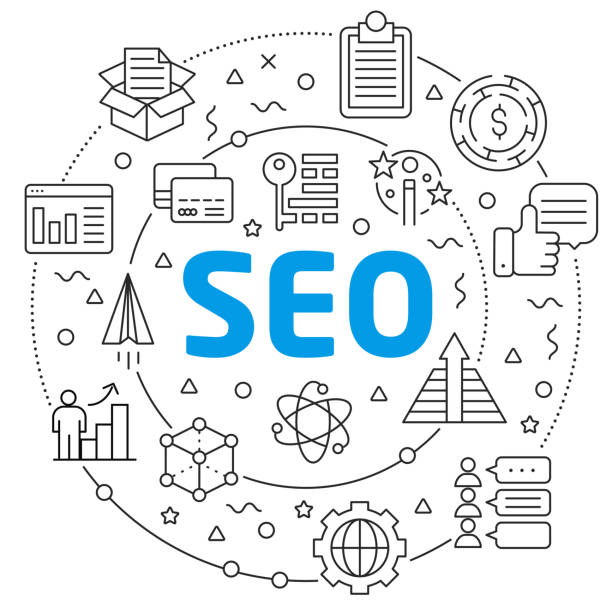
Off-Page SEO: Increasing Website Authority
Off-Page SEO refers to a set of techniques and strategies performed outside your website with the goal of increasing its authority and ranking in search results.
One of the most important factors in Off-Page SEO is acquiring links from other websites (Link Building).
Links act as a “vote of confidence” from other websites to your website and show search engines that your website is reputable and valuable.
To acquire links, you can use various methods, such as producing high-quality and valuable content that other websites will link to, participating in content marketing activities, building relationships with bloggers and influencers, and engaging in online forums and groups related to your industry.
Social networks can also play an important role in Off-Page SEO.
Sharing website content on social media can help increase website visibility and attract links.
Also, online reputation management and reviewing and responding to user comments and criticisms can help improve your website’s credibility.
Ultimately, Off-Page SEO requires effort and patience and should be done continuously and consistently.
SEO also helps with branding.
How much does losing business leads due to an unprofessional website cost you? Solve this problem forever with professional corporate website design by Rasawab!
✅ Increase credibility and trust of potential customers
✅ Easier attraction of new business leads
⚡ Get a free consultation now!
Website Speed Optimization for SEO
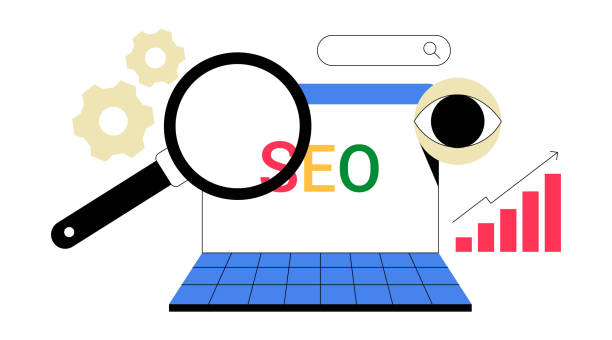
Website Speed Optimization for SEO
Website speed is an important factor in SEO and user experience.
Websites with slow loading speeds may face high bounce rates and a decrease in search result rankings.
Users expect websites to load quickly, and if a website loads slowly, users are likely to abandon it.
Also, Google and other search engines consider website speed as a crucial ranking factor, and faster websites have a better chance of achieving higher rankings.
To optimize website speed, you can use various techniques.
One of the most important techniques is image optimization.
Large images can slow down page loading speed.
Therefore, you should compress images using appropriate tools and use suitable formats like JPEG or WebP.
Also, using optimized Content Management Systems (CMS), enabling Gzip compression, utilizing Content Delivery Networks (CDN), and code optimization can help improve website speed.
Furthermore, checking and fixing website errors and regularly updating plugins and themes can positively impact website speed.
Website speed is very important for SEO.
Mobile SEO: The Necessity of Optimization for Mobile Devices

Mobile SEO: The Necessity of Optimization for Mobile Devices
With the increasing use of mobile devices for internet searches, Mobile SEO has become a necessity for every website.
Google and other search engines prioritize websites optimized for mobile devices, placing them higher in search results.
If your website is not optimized for mobile devices, you may experience traffic loss and a decrease in search rankings.
To optimize your website for mobile devices, you should use Responsive Design.
Responsive design allows your website to automatically adapt to the screen size of various devices, including smartphones and tablets.
Also, you must ensure high website loading speed on mobile devices and avoid elements that may cause issues on mobile devices, such as Flash.
Using readable fonts and large, tappable buttons can also help improve the user experience on mobile devices.
Content optimization for mobile devices is also important.
You should organize your content in a way that is easily readable and understandable on mobile devices.
SEO is always changing.
Analyzing and Measuring SEO Results
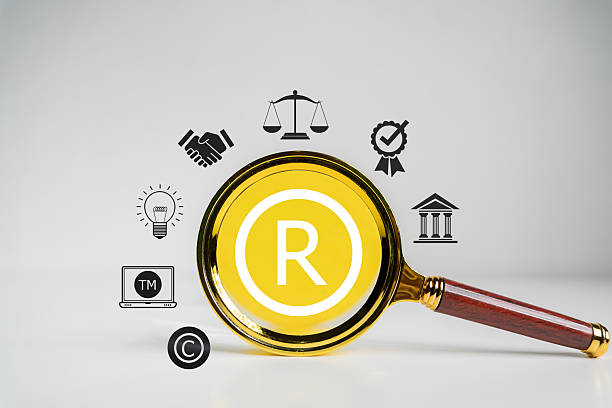
Analyzing and Measuring SEO Results
Analyzing and measuring SEO results is one of the most important stages in the SEO process.
Without analysis and measurement, you cannot understand whether your SEO strategies are effective or not and what changes should be made to them.
To analyze and measure SEO results, you can use various tools, such as Google Analytics and Google Search Console.
These tools provide useful information about website traffic, keyword rankings, conversion rates, and other important SEO metrics.
Using Google Analytics, you can analyze your website traffic based on source, device, location, and other factors.
You can also measure bounce rate, time on page, and other user engagement metrics.
With Google Search Console, you can check your keyword rankings in search results, identify website errors, and submit your sitemap to Google.
By analyzing this information, you can identify the strengths and weaknesses of your SEO strategies and make necessary changes.
Additionally, by comparing your SEO results with those of competitors, you can evaluate your performance and adopt better strategies to improve your SEO.
SEO is a time-consuming process.
| Key Metric | Measurement Tool | Description |
|---|---|---|
| Organic Traffic | Google Analytics | The number of website visitors who arrived at the site through organic search results. |
| Keyword Ranking | Google Search Console, Ahrefs, Moz | The website’s position in search results for target keywords. |
| Bounce Rate | Google Analytics | The percentage of visitors who leave the website after viewing only one page. |
| Time on Page | Google Analytics | The amount of time visitors spend on a page of the website. |
| Conversion Rate | Google Analytics | The percentage of visitors who complete a specific goal (e.g., purchase, registration, etc.). |
SEO Tools: Introduction and Applications
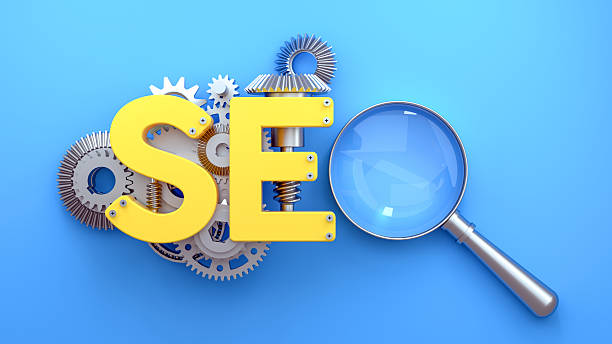
SEO Tools: Introduction and Applications
SEO tools play a very important role in the process of optimizing websites for search engines.
These tools provide information and features that help you find suitable keywords, analyze your website, examine competitors, and measure your SEO results.
Some SEO tools are free, while others are paid.
Each of these tools has specific features and applications, and you can use them depending on your needs.
Google Analytics and Google Search Console are two free and very powerful tools provided by Google.
Google Analytics helps you analyze your website traffic and obtain useful information about visitors, popular pages, bounce rate, and other important metrics.
Google Search Console helps you check your keyword rankings in search results, identify website errors, and submit your sitemap to Google.
Ahrefs, Moz, and SEMrush are paid SEO tools that offer more advanced features, such as competitor analysis, link analysis, and keyword tracking.
These tools are very useful for businesses looking for professional SEO.
SEO will help you grow your business.
Are you dissatisfied with your e-commerce site’s low sales?
Rasawab is your solution for having a professional and high-selling e-commerce site.
✅ Significant increase in sales and revenue
✅ Easy and enjoyable shopping experience for customers
⚡ Get a free consultation from Rasawab now!
Common SEO Mistakes and How to Avoid Them
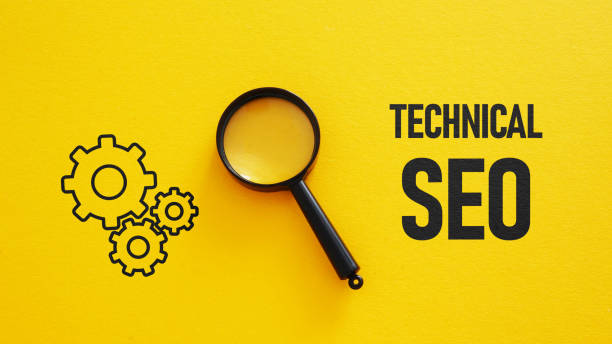
Common SEO Mistakes and How to Avoid Them
In the SEO process, mistakes can occur that may lead to a decrease in your website’s ranking in search results.
Avoiding these mistakes can help improve your SEO and increase your website traffic.
One common mistake is keyword stuffing.
Excessive use of keywords in content, titles, and meta descriptions can signal to search engines that you are trying to manipulate them, which can lead to your website being penalized.
Instead of overusing keywords, try to use them naturally and in the appropriate context.
The important point is that SEO is a skill.
Another common mistake is duplicate content.
Copying content from other websites or using duplicate content on your own website can lead to a decrease in your website’s ranking.
Try to produce original and unique content and avoid content duplication.
Also, neglecting mobile SEO, not optimizing website speed, and not analyzing and measuring SEO results are common SEO mistakes that should be avoided.
By observing these points, you can avoid common SEO mistakes and help improve your website’s SEO.
SEO is a complex process.
The Future of SEO: Trends and Predictions

The Future of SEO: Trends and Predictions
SEO is a dynamic and evolving field, and new trends and predictions constantly emerge with new technologies and changes in search engine algorithms.
One important trend in SEO is the increasing importance of User Experience.
Search engines prioritize websites that offer a better user experience, placing them higher in search results.
Therefore, improving website speed, responsive design, using readable fonts and large, tappable buttons, and providing high-quality and relevant content can help improve user experience and increase your website’s ranking.
Also, the increasing importance of Local SEO is another significant trend in SEO.
With the rising use of mobile devices for internet searches, users are more often looking for local businesses.
Therefore, optimizing your website for local keywords and registering your business in local directories can help attract local customers and increase sales.
The use of Artificial Intelligence (AI) and Machine Learning is also transforming SEO.
Search engines use AI and machine learning to better understand content and provide more accurate search results.
Therefore, producing high-quality and relevant content and using Structured Data can help search engines better understand your website’s content and rank it higher in search results.
SEO means adapting to changes.
Frequently Asked Questions
| Question | Answer |
|---|---|
| What is SEO? | SEO, or Search Engine Optimization, is a process for increasing the quality and quantity of website traffic by improving the site’s ranking in organic search results of search engines like Google. |
| What are the main types of SEO? | SEO is divided into three main categories: On-Page SEO, Off-Page SEO, and Technical SEO. |
| What does On-Page SEO include? | On-Page SEO includes optimizing elements within the website, such as keywords, Title Tags, Meta Descriptions, content, URL structure, images, and internal links. |
| What is Off-Page SEO? | Off-Page SEO refers to activities outside the website that help improve its ranking, such as Backlink Building, social media marketing, and Brand Mentions. |
| What is Technical SEO? | Technical SEO focuses on optimizing the technical aspects of a website to help search engines crawl and index it better. This includes site speed, mobile-friendliness, site structure, Sitemaps, and the Robots.txt file. |
| What role do Keywords play in SEO? | Keywords are phrases that users enter into search engines. Correct and targeted use of relevant keywords in content and site elements helps search engines understand your page’s topic and display it for relevant searches. |
| What is a Backlink and why is it important? | A backlink, or inbound link, is a link from one website to another. Backlinks act as a “vote of confidence” from other sites to your website and play an important role in the site’s credibility and ranking, especially if they come from reputable sites. |
| What impact does high-quality content have on SEO? | High-quality, relevant, comprehensive, and unique content not only attracts and retains users but also signals to search engines that your page is valuable. This helps improve ranking, reduce Bounce Rate, and increase user time on site. |
| Why is site loading speed important for SEO? | Site loading speed is an important ranking factor for Google. Faster sites provide a better user experience, have lower bounce rates, and are preferred by search engines. |
| Is SEO a one-time process? | No, SEO is an ongoing and long-term process. Search engine algorithms are constantly changing, competition is increasing, and site content also needs updating. Therefore, SEO requires continuous monitoring, analysis, and optimization. |
And other services of Rasawab Advertising Agency in the field of advertising
- Smart Customer Journey Map: Revolutionize site visits by optimizing key pages.
- Smart UI/UX: Professional optimization to increase sales using marketing automation.
- Smart Direct Marketing: An effective tool for customer acquisition through Google Ads management.
- Smart Sales Automation: A combination of creativity and technology for campaign management through attractive UI design.
- Smart Sales Automation: Professional optimization to increase click-through rates using custom programming.
And over hundreds of other services in the field of internet advertising, advertising consulting, and organizational solutions
Internet Advertising | Advertising Strategy | Advertorial
Sources
Complete Guide to Content SEO
Improving Site Ranking with Content
Content Production SEO Tips
Advanced Content SEO Training
? Do you need a reliable partner to advance your business in the digital space? Rasawab Afarin Digital Marketing Agency smooths your growth path by providing specialized services including corporate website design, SEO, and social media management.
📍 Tehran, Mirdamad Street, next to Bank Markazi, Kazerun South Alley, Ramin Alley No. 6




